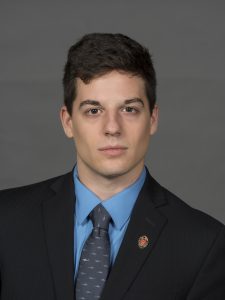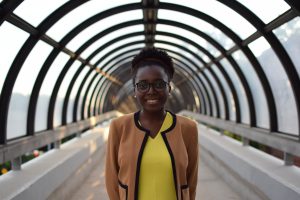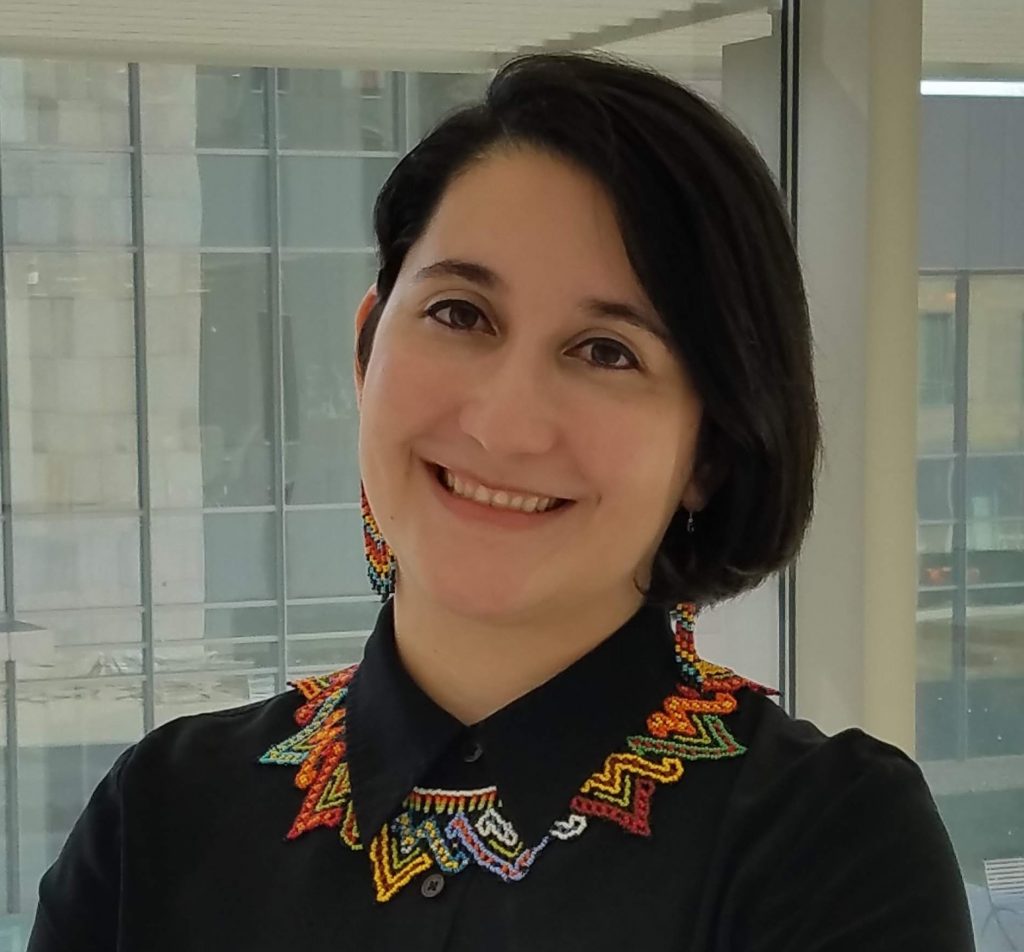AHA Foundation Campus Fellows Share How They Expand Students’ Horizons on North American Universities

The Critical Thinking Fellowship (CTF) works to alert and activate students about dangerous traditional practices such as female genital mutilation (FGM), child and forced marriage, and the Muslim reformation movement in the U.S. and Canada. The campus fellows work together to bring ex-Muslims, Muslim reformers, and scholars from many fields to speak at events on their campuses. In this blog, three CTF fellows share how they spark conversations with their peers of opposing views on their colleges.
Paul is a third year law student at the University of Cincinnati College of Law. He has been a CTF fellow for a year and has hosted three events covering various topics on his campus. Following graduation he plans to pursue a career working in constitutional law and preserving individual rights.
“CTF provides the opportunity for students to realize that the world and its myriad of issues is broader than the domestic squabbles covered on mainstream news programs.”
The first event I ever hosted as a CTF fellow was with Dr. Elham Manea, a Yemeni-Swiss Associate Professor, a writer, and a human rights activist. Dr. Manea is also a Muslim reformer who researches and speaks out against Islamism. She was interested in touring several campuses across the U.S. and my co-fellow and I felt it would be an excellent opportunity for CTF’s pilot event in Cincinnati.
I found CTF in August of 2017, when I was attending an event in Cleveland, Ohio where Yasmine Mohammed was speaking. After the event, Yasmine heard I was still in school and suggested I apply to become a fellow for a new program that the AHA Foundation and Ideas Beyond Borders were creating. That program, of course, was the Critical Thinking Fellowship. I then started my fellowship with CTF in the spring of 2018. Over the course of my fellowship I have hosted three different events ranging from the importance of understanding radicalization in the Middle East, to the physical and mental effects of female genital mutilation, and the importance of open and honest dialogue when discussing Islam and Islamism. When I first joined CTF, I was only generally interested in the women’s issues that the AHA Foundation focuses on. However, since joining the program my interest has increased dramatically—primarily from learning more about the prevalence of these issues in the United States and across the world, and helping educate others on them. By hosting events, providing educational materials, and fostering discussion on college campuses, CTF expands the horizons of college students whether they are hearing about the impact of FGM, listening to a speaker tackle something as divisive as the Israeli-Palestinian conflict, or simply being exposed to informed civic discussion. CTF provides the opportunity for students to realize that the world and its myriad of issues is broader than the domestic squabbles covered on mainstream news programs. I think that’s the real value of CTF, helping students discover new ideas, new approaches, and to provide a forum for discussion about these ideas. Hosting events is a lot of additional effort on top of school commitments. In my experience, however, most of the additional work comes prior to the event itself. Scheduling can be much more strenuous than hosting. Luckily, students, faculty, and staff are generally pretty open-minded on my campus about hearing new or different ideas. Even if participants get into a heated debate, everyone is always respectful of the others values. When we hosted a screening of Islam and the Future of Tolerance with Jay Shapiro and Yasmine Mohammed for a screening of the school’s, the Muslim Lawyers Association agreed to co-host the event! It was so great to have a diverse group of attendees who could bring different perspectives to the discussion after the movie. When you join CTF, there are so many unique experiences that you are privy to encounter. Two of my favorites are the CTF summer training event and the opportunity to network. Meeting other fellows from across the country was immensely invigorating because everyone there was interested in ideas and willing to engage respectfully when disagreements arose. Although we have commonality around AHA Foundation’s core topics, we are so diverse in our education, background, and vision for the world. Second, I think meeting and interacting with the various speakers CTF offers has been extremely beneficial to me. All the speakers are experts in their respective fields and it is always exciting to listen to an expert share his or her expertise with students through a presentation or in a question and answer setting. It really is an unique and incredible opportunity that I will always cherish. Halimat is a senior at the University of Michigan studying Public Health Sciences. She has been a CTF fellow for one year and has hosted two events. Following her graduation in May she will be furthering her education in her pursuit to become a medical doctor. I first got involved with the Critical Thinking Fellowship (CTF) in the beginning of summer 2018 after Julia, the Campus Program Coordinator, read my piece in my school newspaper. My article was about a television show called The Bold Type and the importance of representing queer, Muslim women in the media. Julia explained what CTF was, and asked if I was interested in joining the program. Women’s health has always been an interest to me, and I was looking for more ways to get involved in this topic. During my spring 2018 semester, I learned about health disparities that affect women of color, and felt a calling to do something about it. When I heard what topics CTF covered, it seemed like a great fit for me. Being a CTF fellow means I get to bring these topics to campus, and educate others who are unaware of these issues. Planning events on campus is much more work than I originally imagined, between finding an interesting topic and marketing it to your peers. The CTF summer training exposes you to all elements of the subjects that the program covers like FGM, child marriage, forced marriage, and Islamism. This helps you pick your topic for the event, and think about what speaker you want to bring. I have hosted two events on my campus, both of them centering around women’s issues like female genital mutilation and LGBTQ+ acceptance in the Muslim culture. My first event was especially challenging as I had to deal with political issues, coordinating speakers schedules, and some pushback when trying to secure opposing views to have a balanced conversation. I wanted to partner with the University of Michigan Muslim Student Association to co-sponsor my event, I was hopeful to get their endorsement and partnership, but unfortunately they did not want to work with me. It’s frustrating and disappointing knowing my campus doesn’t have a space for queer Muslim students, and I think that’s partially why my events were so successful. I created space for exchange of diverse ideas and points of views, the space that clearly did not exist before. After my events, I always hear such positive feedback about the content and speakers. I feel empowered and refreshed knowing my friends and peers care about these issues and are open to learning more about them. My favorite thing about being a part of CTF has been being exposed to so many different viewpoints through the diversity of campus fellows. Some are even the total opposite of my own. I think it is very beneficial and necessary to have intellectual conversations with people who see things differently than you do, and quite frankly not enough of us do that often enough and it shows. People have a tendency to argue over identity and the person making the statement rather than the actual facts and situation at hand. The biggest challenge is the fact that CTF falls under AHA Foundation, and many people have strong feelings for or against Ayaan. That makes hosting an event more difficult because before I can even present an idea or concern, people see AHA Foundation and immediately decide if they’re willing to work with me or not, without hearing my event idea. I don’t think AHA Foundation has a fair reputation or gets enough credit for the work it has done towards ending FGM and child marriage. I am thankful for the opportunities CTF has provided, and I think it is important because it helps college students mobilize. College is a time where people are expanding their views and should be engaging in conversations with others to grow their opinions. I, and many of my peers, have a lot of pent up energy and viewpoints about the world around us. But at the same time, we feel powerless to make a change, and sometimes need help showing us how we can truly make an impact. CTF empowers college students to become activists on our campuses, and help disseminate crucial information through an event on our individual campuses. Adriana Buenaventura-Martinez is a former CTF fellow with a Master of Laws in International Legal Studies from American University who specializes in International Human Rights and Gender and International Law. She is a human rights and secular activist that works for American Atheists as a Law Clerk and Hispanic American Freethinkers as a Director. She joined CTF in June 2018. I was already interested in the women’s issues that AHA Foundation covers before joining CTF because of my graduate education. I was studying to receive my masters degree and because of that, during my classes, we would cover more niche topics specifically child and forced marriage, freedom of expression, religious extremism, and FGM. Because of my interests, when I met Faisal Al Mutar, founder of Ideas Beyond Borders and co-founder of CTF, he thought my secular values and interests would fit great with the campus program. I decided to apply to the program and officially became a fellow in June 2018. After attending the summer training for the campus program, I was inspired to educate others by Amanda’s presentation regarding general statistics, legislation by states, and her experience working with FGM survivors. Although I already knew about FGM, hearing about the lack of awareness in the United States, and struggles to pass legislation inspired me to plan an event to educate my peers. I knew I wanted to host an event with a great impact in the community, so I chose to dispel the misconception that FGM is only an “African problem.” In fall 2018 I planned the event “Female Genital Mutilation in the US. Call for Action” at American University Washington College of Law. The event featured Amanda Parker, Senior Director at AHA Foundation, and Angela Peabody the Founder of Global Woman P.E.A.C.E. Foundation, an organization founded on the principles of eliminating violence and injustices against women and girls. It addressed the growing risk of women and girls in the United States to be subject or undergo FGM while supporting the enactment of state legislation banning such practice. At the time of my event, the case United States v. Nagarwala was still deciding if the federal anti-FGM legislation was unconstitutional and AHA Foundation had written and filed an amicus brief in support of the prosecution. I felt that my event was especially relevant at my law school because we were targeting future lawyers and international attorneys that in the future, would be willing to advocate against this topic. Also, legislation banning FGM was introduced in several surrounding states including Maryland where many American University students live. CTF is an important program for college students because it empowers us with the freedom to reach the community with these important, and often deemed taboo topics. But this process does not happen by snapping your fingers, we receive training, support, and guidelines to help us create a successful event. In this sense, the CTF program is different from any other program impacting students on campuses around the country. CTF gives us the tools we need to advocate for freedom of expression on campuses around the U.S., and I will always be grateful for this experience. My favorite thing about being part of the Critical Thinking Fellowship program is the freedom I have to choose and develop these ideas into successful events. Through this program, I was able to pick a topic I am interested in and choose one or more speakers with the help of the Campus Program Coordinator, Julia. I also really value the experience of being trained to host events and draw a crowd to come listen. I now feel empowered to continue speaking about gender-based violence. I have the opportunity to bring what I have learned in the CTF to the 2019 American Atheists Convention, April 19-21 in Cincinnati. I will make a presentation about FGM and its links to a vision of women’s virginity and sexual control. Find out more about our campus program, and get involved here!
“…since joining the program my interest (in abuses AHA Foundation works to expose) has increased dramatically—primarily from learning more about the prevalence of these issues in the United States and across the world, and helping educate others on them.”
“When you join CTF, there are so many unique experiences that you are privy to encounter.”
“Although we have commonality around AHA Foundation’s core topics, we are so diverse in our education, background, and vision for the world.”
“…and I think that’s partially why my events were so successful. I created space for exchange of diverse ideas and points of views, the space that clearly did not exist before.”
“Being a CTF fellow means I get to bring these topics to campus, and educate others who are unaware of these issues.”
“I think it is very beneficial and necessary to have intellectual conversations with people who see things differently than you do, and quite frankly not enough of us do that often enough and it shows.”
“CTF empowers college students to become activists on our campuses, and help disseminate crucial information through an event on our individual campuses.”
“CTF gives us the tools we need to advocate for freedom of expression on campuses around the U.S., and I will always be grateful for this experience.”
“After attending the summer training for the campus program, I was inspired to educate others by Amanda’s presentation regarding general statistics, legislation by states, and her experience working with FGM survivors.”
“…CTF program is different from any other program impacting students on campuses around the country.”
“My favorite thing about being part of the Critical Thinking Fellowship program is the freedom I have to choose and develop these ideas into successful events.”




